Register GNDR on Banner, NMSU
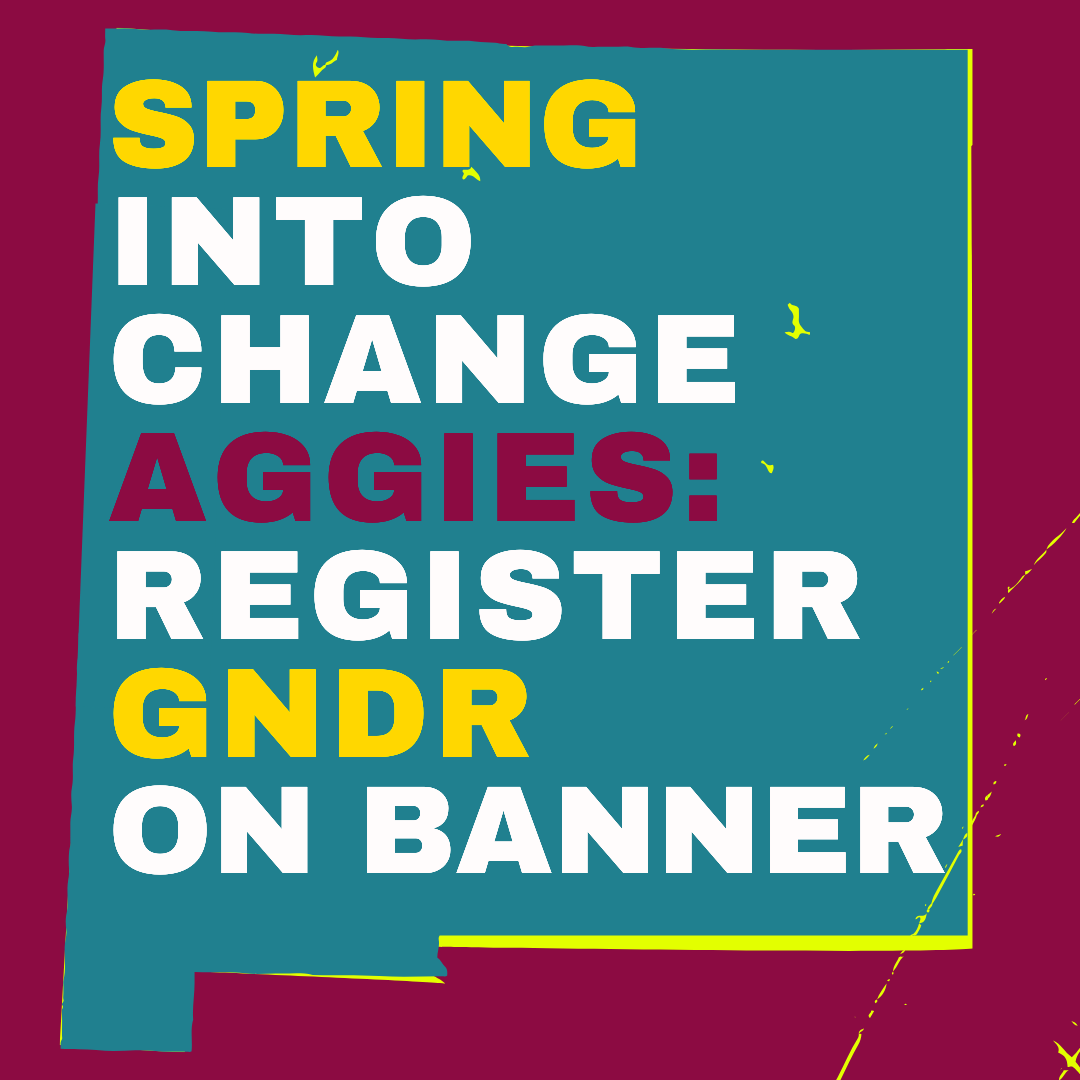
Our courses meet you where you are, whether that’s on campus, online, or with NMSU Global. Enroll for Spring 2025-be part of a community ready to support you in taking on any future with knowledge, resilience, & purpose. Our interdisciplinary approach opens up worlds of possibility that go beyond traditional academic boundaries.
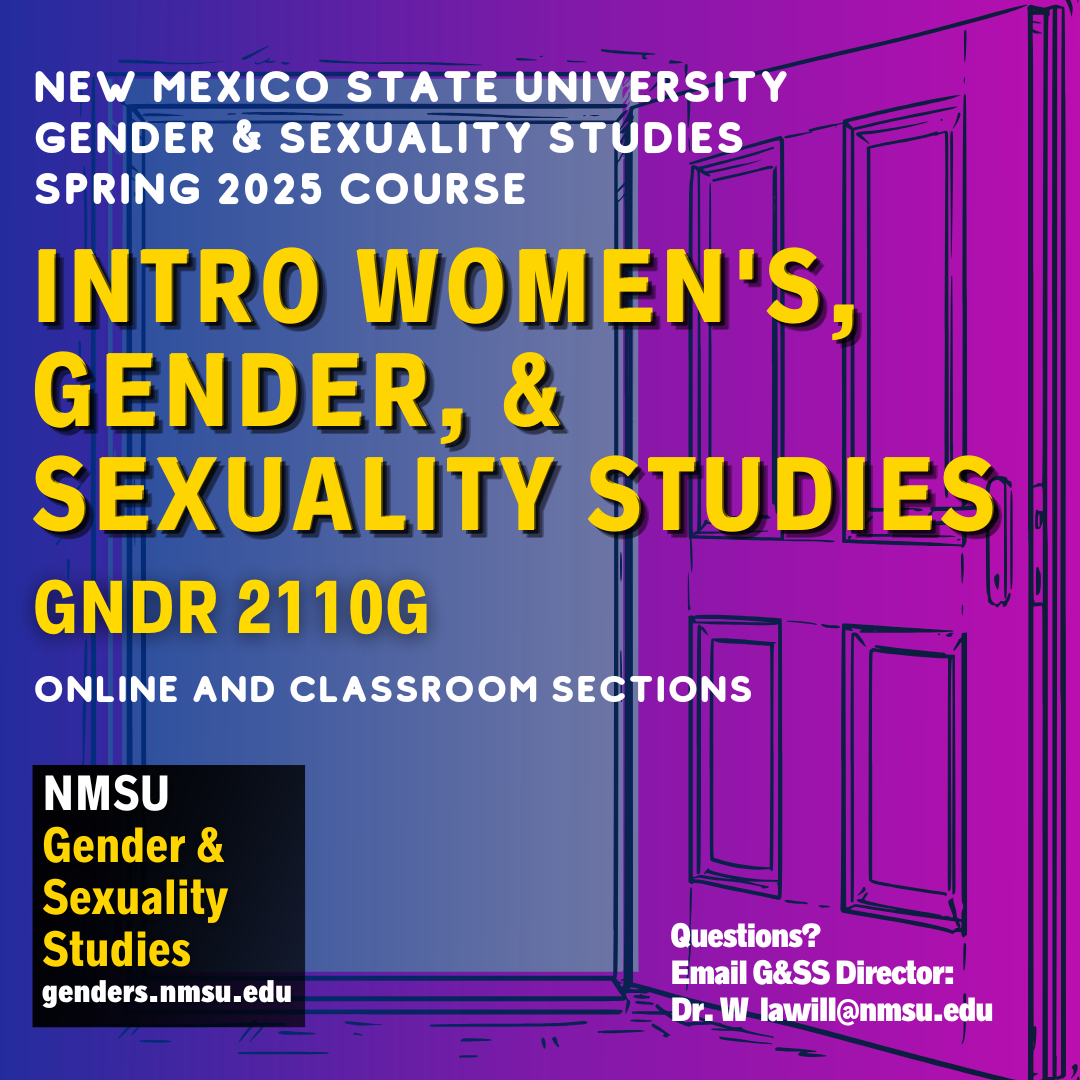
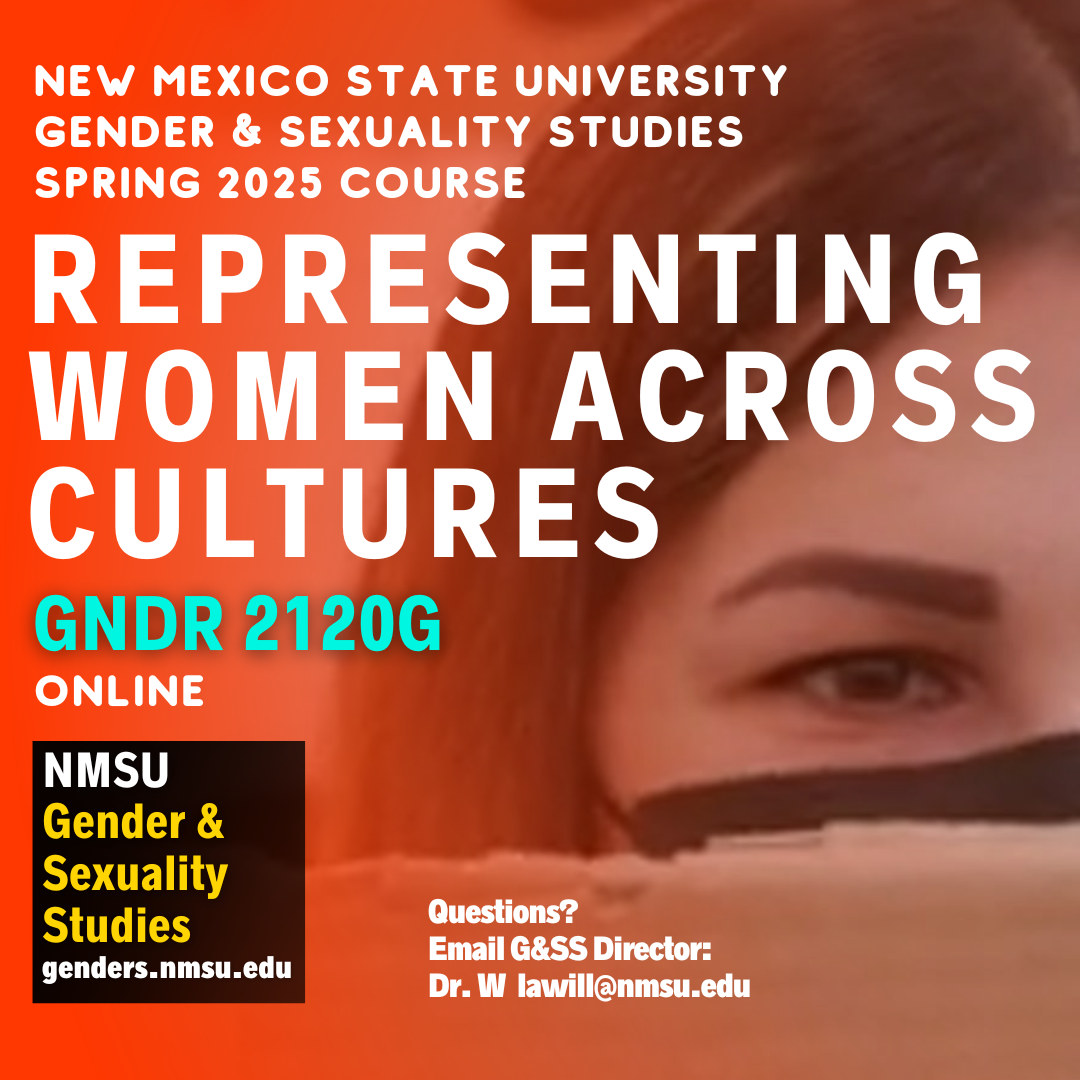
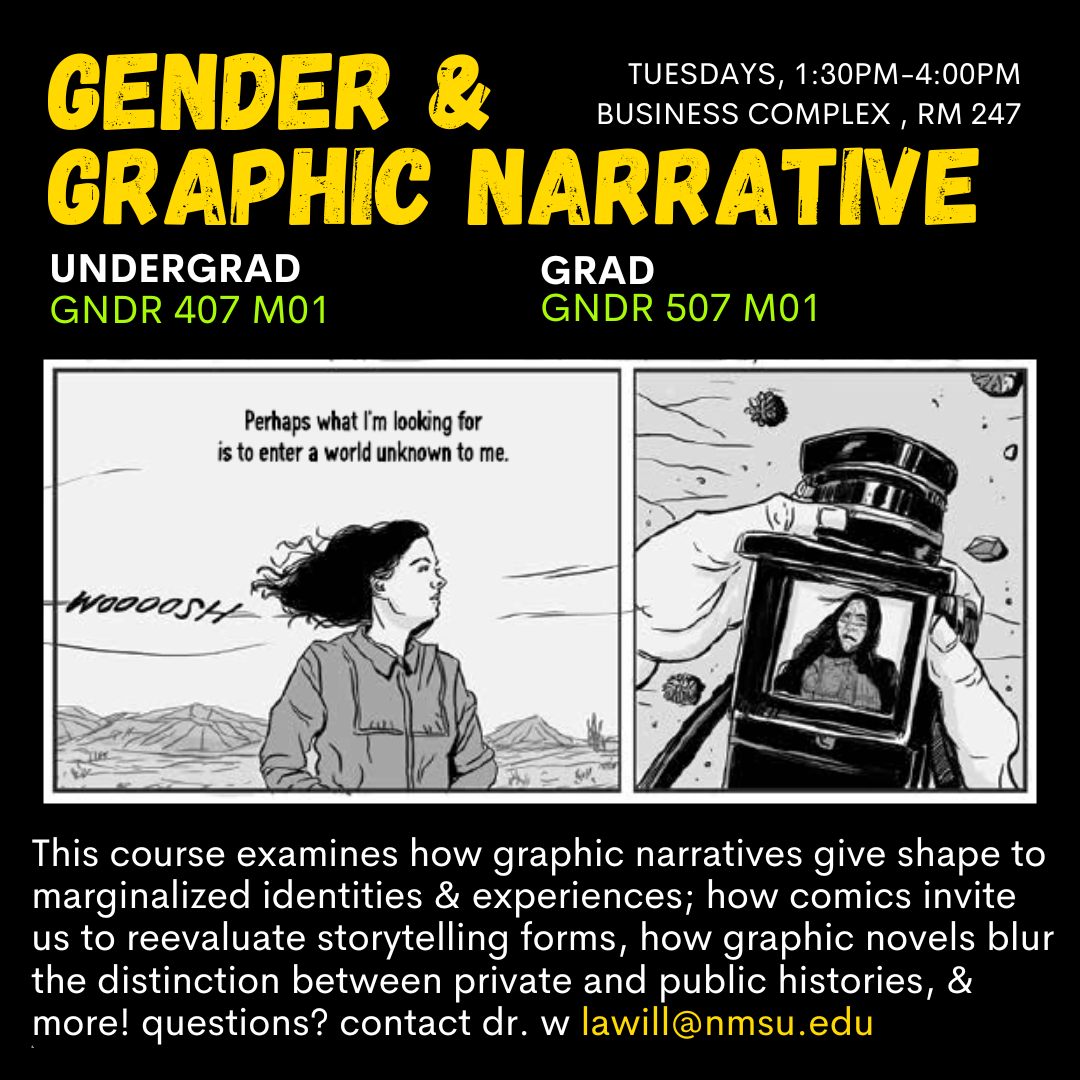
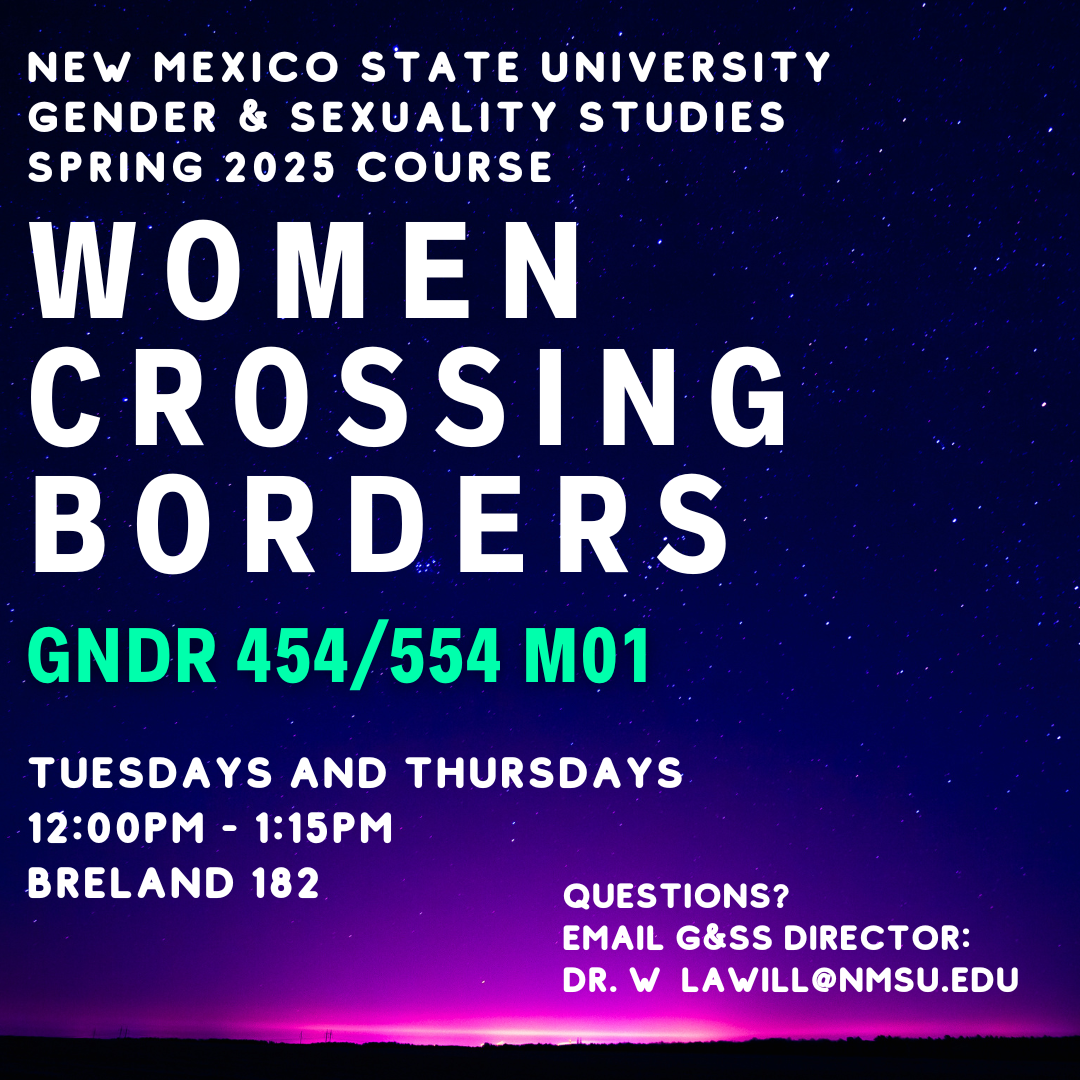
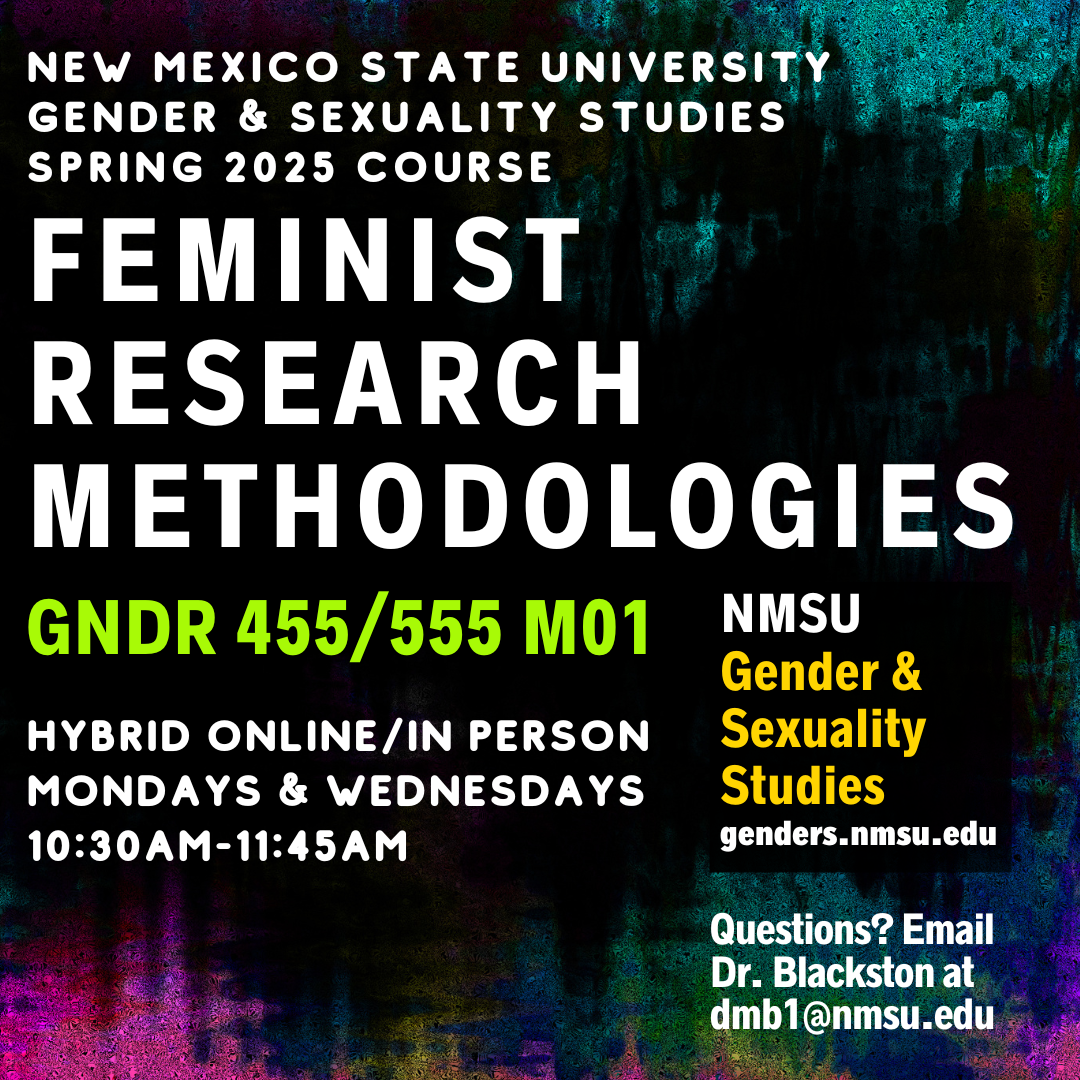
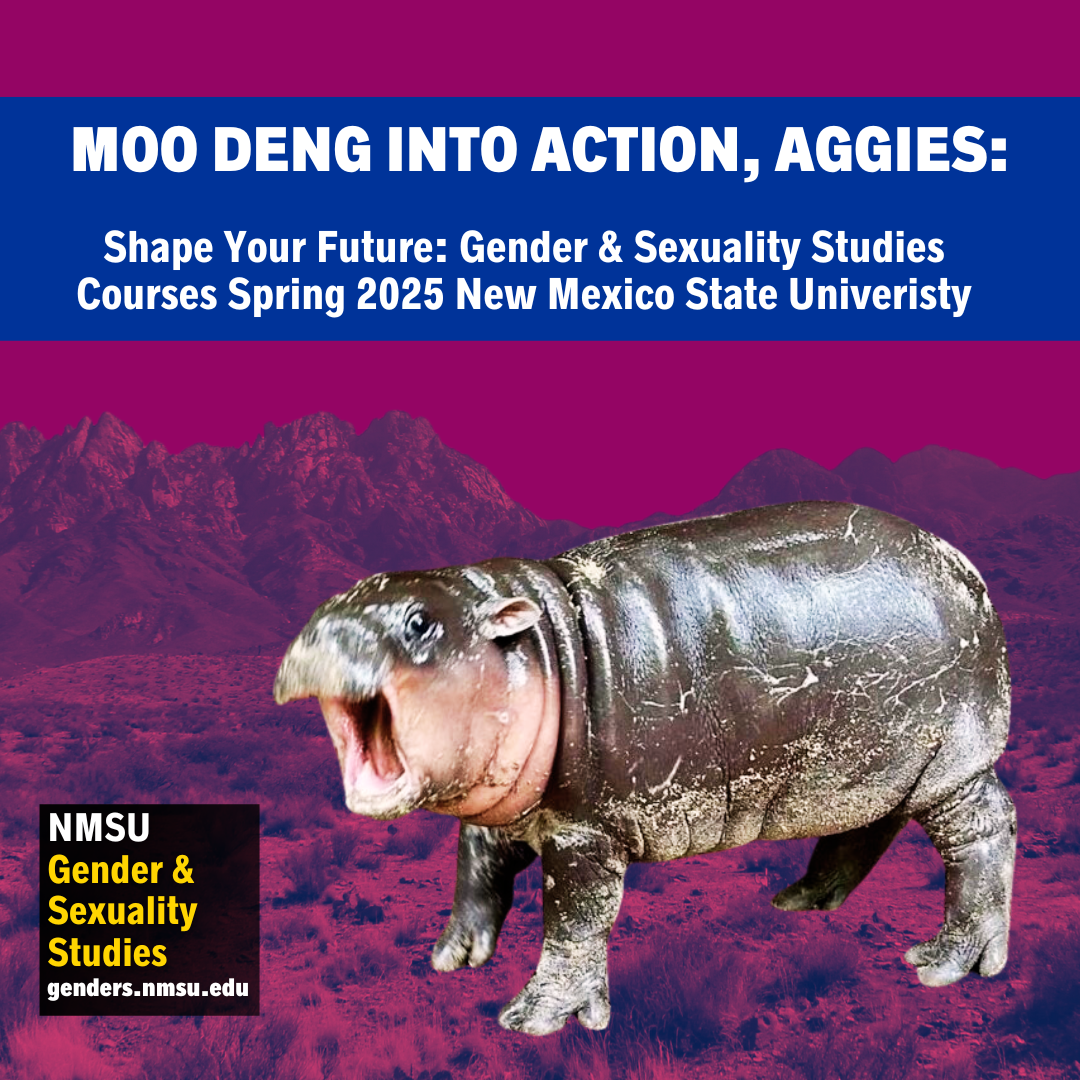
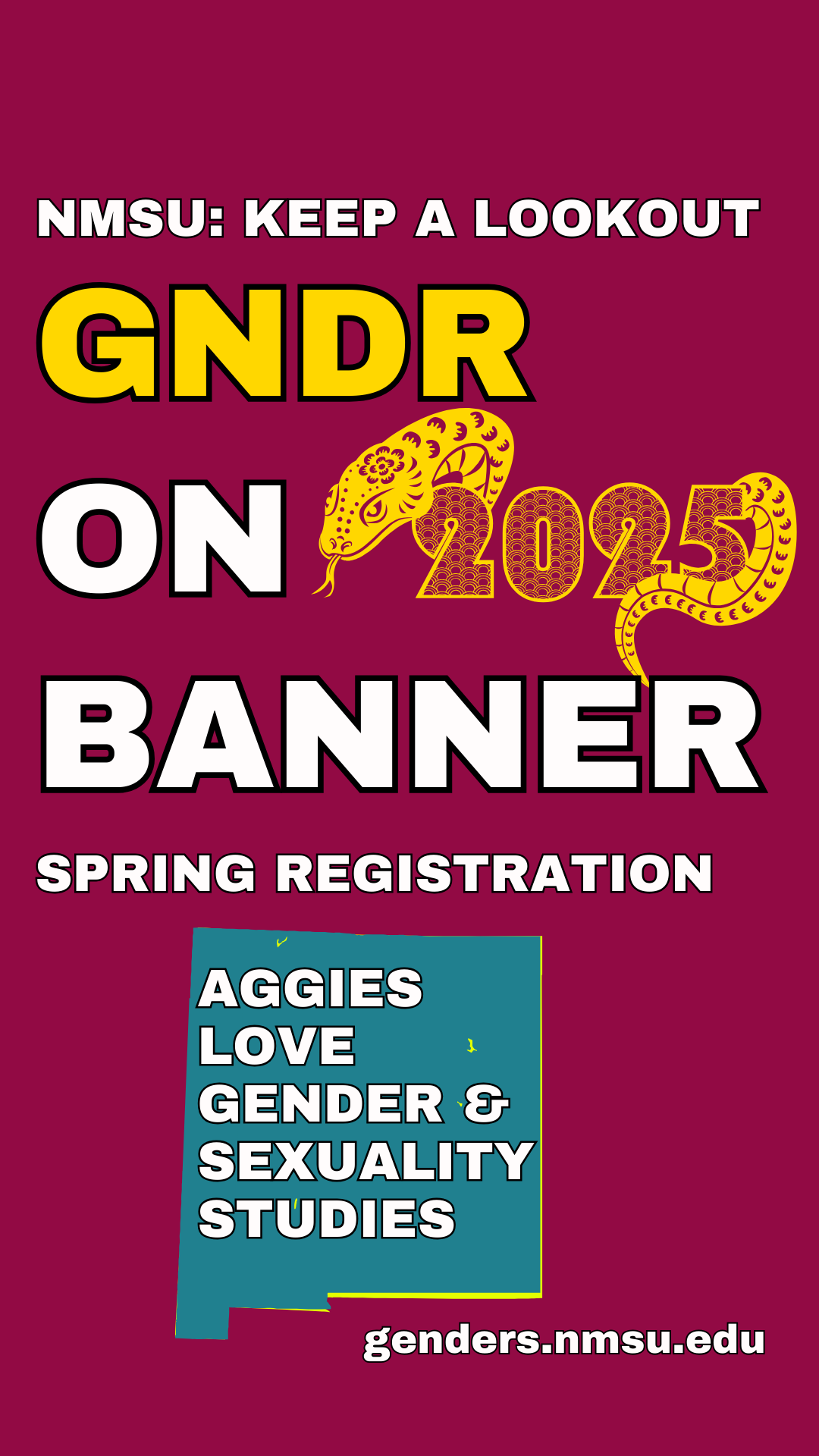
Our courses meet you where you are, whether that’s on campus, online, or with #NMSU Global. Enroll for Spring 2025-be part of a community ready to support you in taking on any future with knowledge, resilience, & purpose.
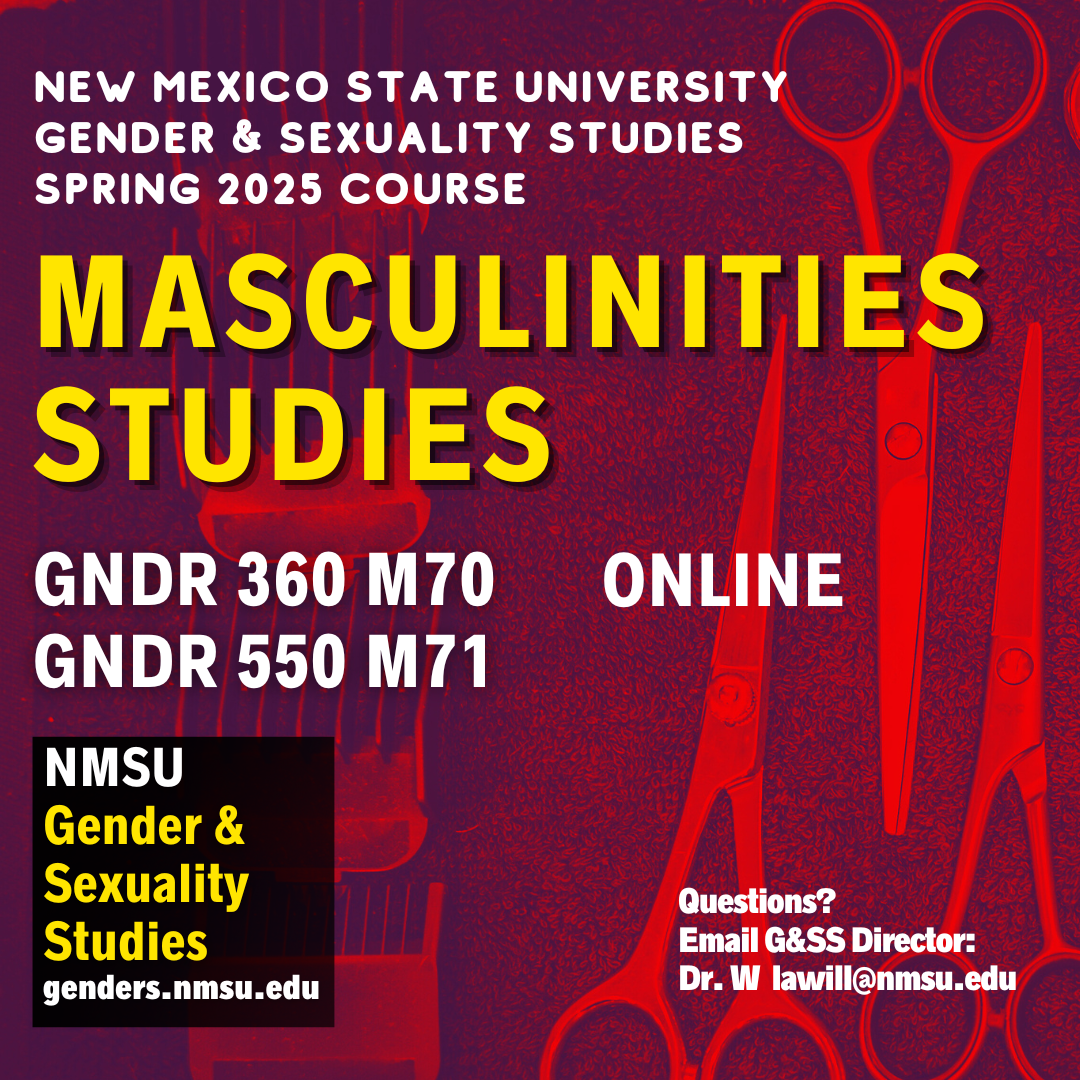
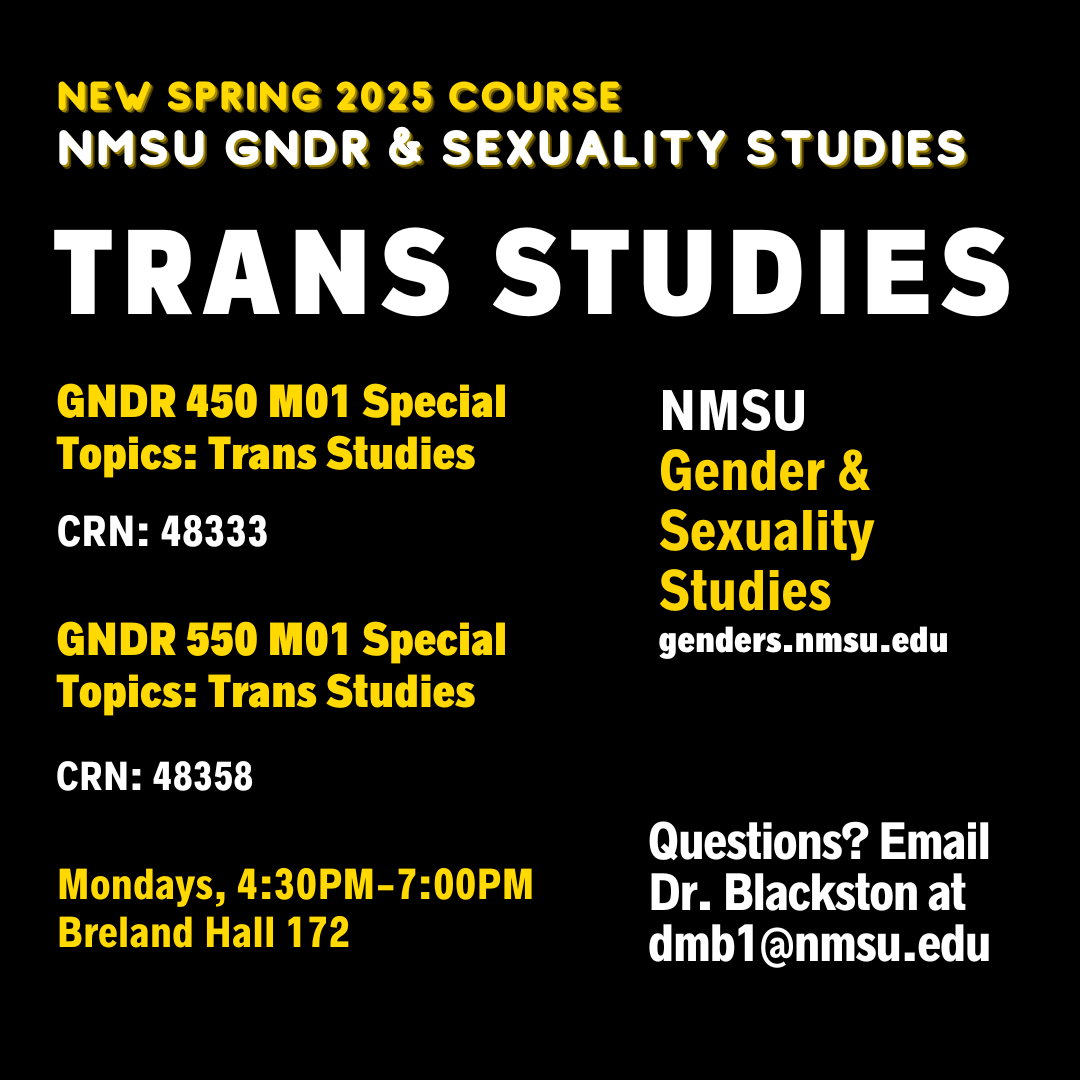
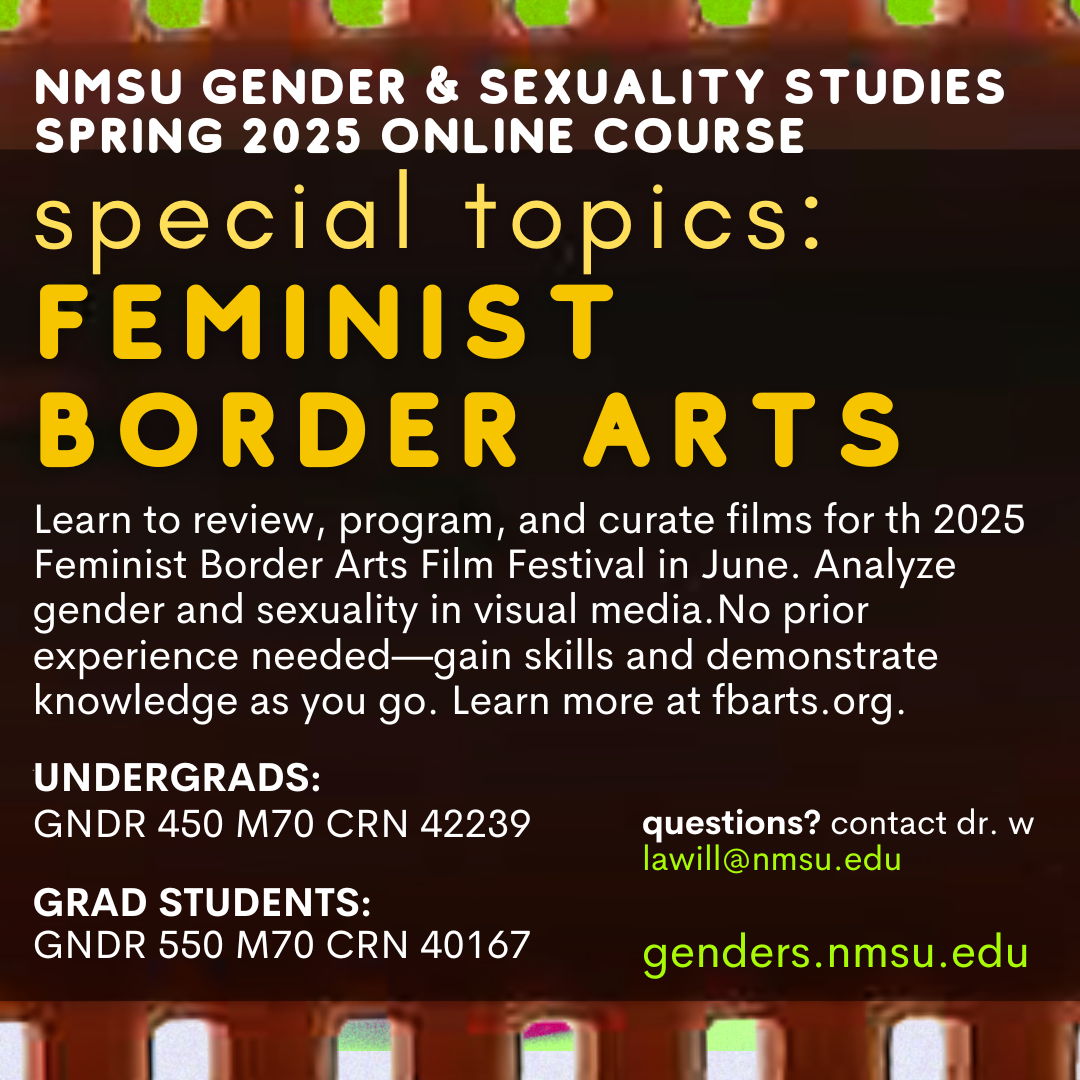
Remember: Register GNDR on Banner
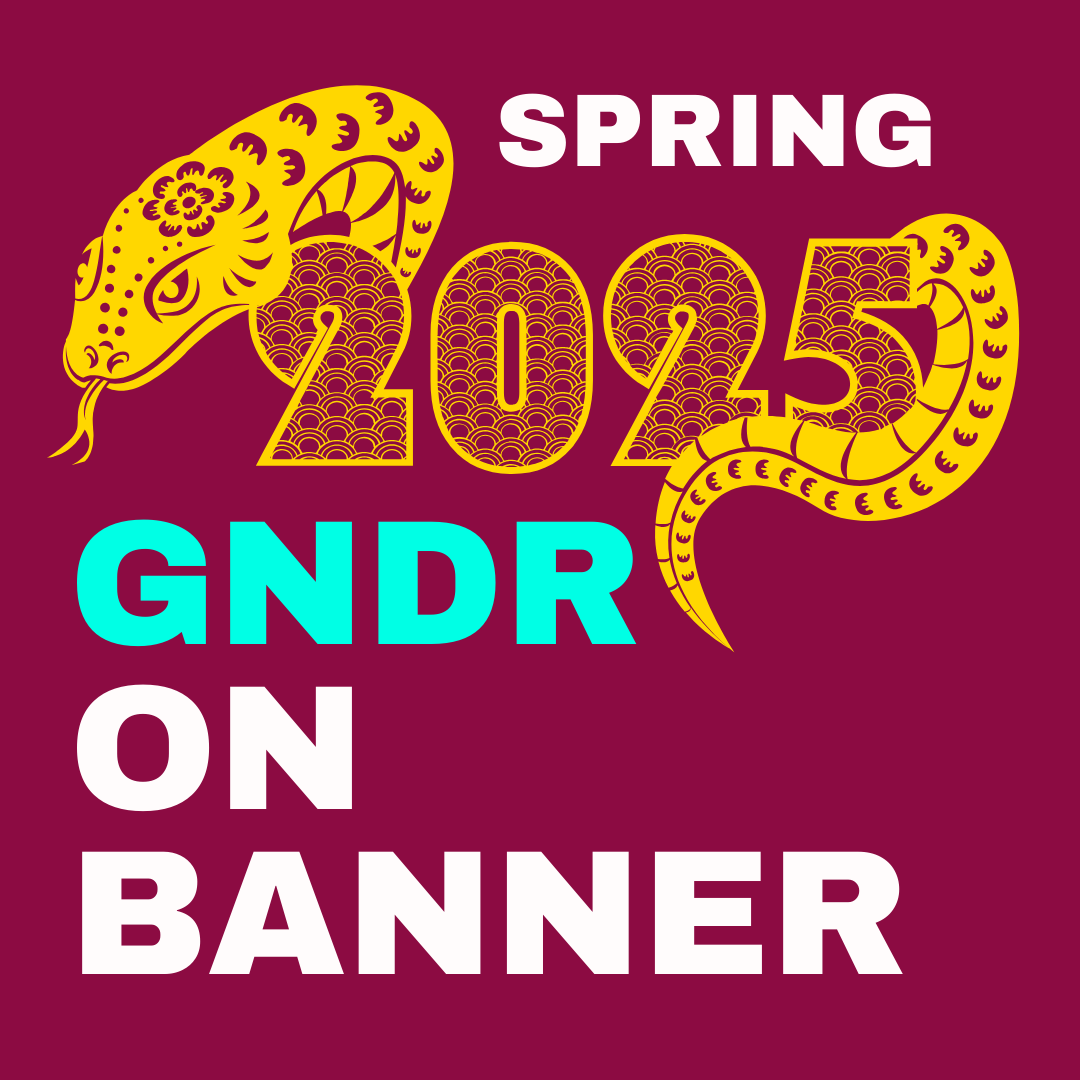
From intersectional theory to real-world application, our courses invite you to reshape what education can be. Whether you're looking to challenge outdated norms or craft new futures, G&SS at NMSU provides the tools to lead with creativity, empathy, and critical thinking.
